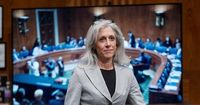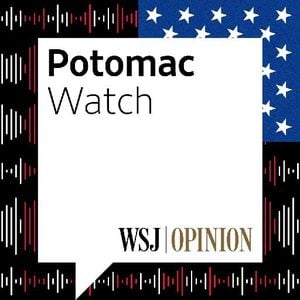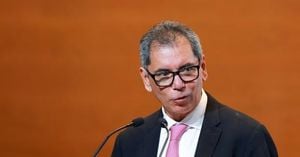Dr. Susan Monarez, the recently ousted director of the Centers for Disease Control and Prevention (CDC), is set to deliver what many expect will be explosive testimony before Congress next week. Her appearance comes on the heels of a dramatic shakeup at the nation’s top public health agency, triggered by a high-profile clash with Health and Human Services (HHS) Secretary Robert F. Kennedy Jr. over vaccine policy—a dispute that has sent shockwaves through Washington and reignited a fierce debate over the future of American public health leadership.
The Senate Health, Education, Labor, and Pensions (HELP) Committee, chaired by Senator Bill Cassidy—a physician and longtime vaccine proponent—announced on September 9, 2025, that Monarez will testify alongside Debra Houry, a former senior CDC official who resigned in protest after Monarez’s firing. Both are expected to offer a candid account of the events leading up to Monarez’s abrupt dismissal just weeks into her tenure, with the hearing scheduled for September 17 at 10 a.m., according to ABC News and The Wall Street Journal.
The stakes are high: Monarez’s ouster has not only thrown the CDC into turmoil but has also prompted bipartisan concern among lawmakers, with several Republican senators openly questioning Kennedy’s approach to vaccine policy. The controversy centers on allegations that Kennedy sought to undercut longstanding vaccine standards and push through policy changes lacking robust scientific support—an accusation Monarez herself made in a widely discussed op-ed for The Wall Street Journal following her departure.
“I was removed after refusing to promise I’d sign off on recommendations made by a panel of advisers handpicked by Secretary Kennedy,” Monarez wrote, as reported by The Wall Street Journal. She contends that her refusal to rubber-stamp these recommendations, as well as her resistance to firing senior CDC scientists, ultimately led to her dismissal. Former CDC official Debra Houry, who will also testify, has echoed Monarez’s concerns, accusing Kennedy of undermining the nation’s vaccine standards and making policy changes not adequately rooted in scientific evidence.
The upcoming hearing is expected to provide Monarez and Houry with their first opportunity to address their firings in front of cameras, and the Senate committee has promised a follow-up session to allow HHS officials to respond to the testimony. The timing is critical: the hearing will take place just one day before the CDC’s vaccine committee—now entirely reconstituted by Kennedy after he abruptly removed all 17 previous members—is set to meet to consider changes to recommendations for Hepatitis B, RSV, and Covid-19 vaccines.
Senator Cassidy, who played a pivotal role in Kennedy’s confirmation as HHS Secretary, underscored the gravity of the moment in a statement: “Americans need to know what has happened and is happening at the CDC. They need to be reassured child’s health is given priority. Radical transparency is the only way to do that.” According to ABC News, Cassidy added, “Children’s health must be the top priority. I thank President Trump and Secretary Kennedy for making radical transparency a priority.”
The controversy has quickly become a flashpoint in the broader debate over vaccine policy and public trust in government health agencies. Kennedy, a longtime critic of certain vaccine mandates, has defended his actions in a series of public appearances and congressional hearings. At a Senate Finance Committee hearing last week, Kennedy denied Monarez’s claims, insisting he did not fire her for refusing to approve vaccine policy changes. “No, I did not,” Kennedy said when pressed by Senator Ron Wyden (D-OR) on whether he had instructed Monarez to go along with vaccine recommendations regardless of scientific evidence. When Wyden asked if Monarez was lying in her Wall Street Journal account, Kennedy replied, “Yes, sir.”
Kennedy went further in a Fox News interview on September 9, 2025, stating, “The problem with CDC is it was supporting dogma all through Covid, Americans saw it for the first time. I’ve been watching for 20 years. We need a CDC director who’s going to follow his science, and that’s what we’re going to do.” He has also cited Monarez’s firing as evidence that the CDC is in need of a broader overhaul, arguing that the agency has been resistant to change and too quick to embrace consensus without sufficient scrutiny.
But Kennedy’s approach has drawn sharp rebukes from across the political spectrum. During last week’s Senate hearing, Senator Maria Cantwell (D-WA) accused Kennedy of conflating chronic disease with the need for vaccines, bluntly telling him, “You’re a charlatan. That’s what you are. You’re the ones who conflate chronic disease with the need for vaccines. The history on vaccines is very clear. This is the 20th century.” Senator Raphael Warnock (D-GA) went even further, calling for Kennedy’s resignation: “You are a hazard to the health of the American people. I think that you ought to resign. And if you don’t resign, the president of the United States—who put forth Operation Warp Speed, which worked—should fire you.”
Meanwhile, Kennedy has stood by his controversial record, questioning the data on Covid-19 deaths and the effectiveness of vaccines, despite CDC figures attributing over 1.2 million American deaths to the virus. “We at HHS are enacting a once-in-a-generation shift from a sick care system to a true health care system that tackles the root causes of chronic disease,” Kennedy told the Senate, as reported by ABC News and the Associated Press. His sweeping changes at HHS have included laying off thousands of public health workers, firing science advisers, and remaking vaccine guidelines—moves that have alarmed many in the medical and scientific communities.
Monarez’s lawyers have forcefully rejected Kennedy’s depiction of events, describing his claims as “false, and at times, patently ridiculous,” and offering to have Monarez testify under oath. The upcoming Senate hearing will give Monarez and Houry a national stage to lay out their version of the story and, perhaps, to sway public opinion at a moment when trust in public health leadership is already fragile.
As the CDC’s vaccine committee prepares to meet under new leadership, the nation waits to see whether the agency’s direction will shift dramatically—and whether Monarez’s testimony will prompt further scrutiny of Kennedy’s vision for American health policy. One thing is certain: the battle over science, transparency, and public trust at the CDC is far from over.




